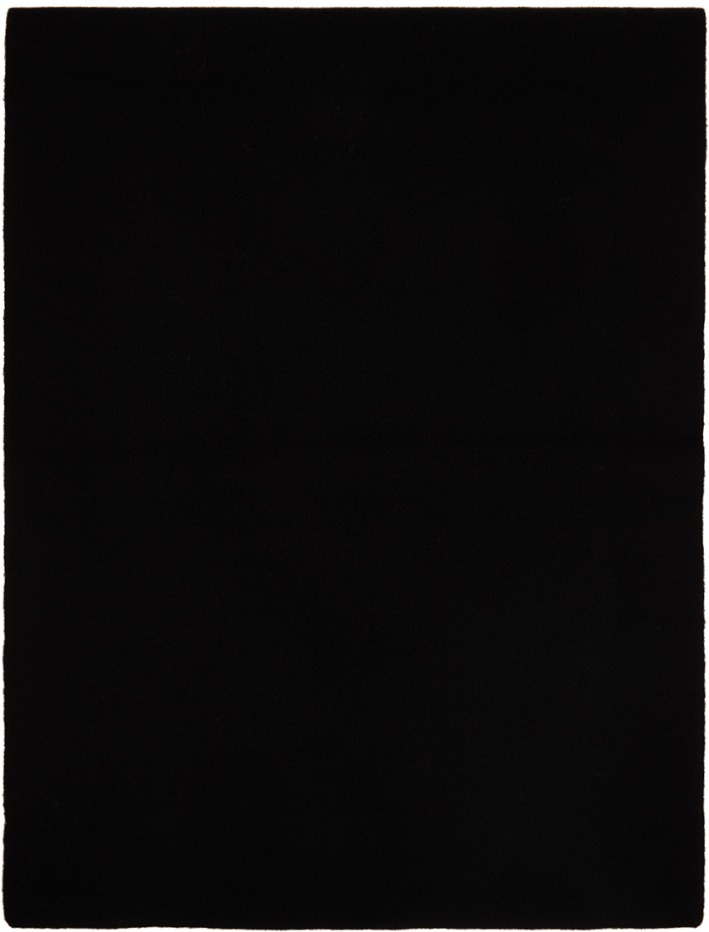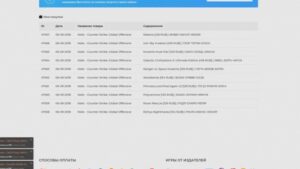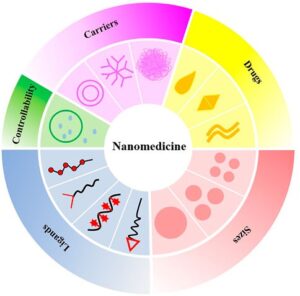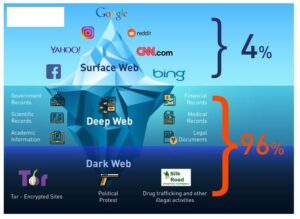
These are economic transactions that occur outside government regulations and are therefore not taxed or monitored by any form of government. Black markets arise when a government restricts certain goods or services, or when individuals seek to avoid government regulation or taxation. One common method used to obfuscate illegally obtained funds is through trade-based money laundering. This technique involves manipulating trade transactions to create the appearance of legitimate business activity while moving funds across borders. Criminals exploit the complexity and volume of international trade to conceal the true nature of their transactions and commingle illicit funds with legitimate trade flows. Understanding the nature and consequences of trade-related black market activities is crucial for implementing effective measures to combat these illicit practices.

For example, anti-counterfeiting campaigns highlight the dangers of purchasing fake pharmaceuticals, while anti-trafficking initiatives focus on the human cost of forced labor and sexual exploitation. By addressing the root causes of demand, these campaigns seek to diminish the market for illicit goods and services, thereby reducing the incentive for criminal enterprises to operate. Those who engage in illicit trade often do so out of necessity, driven by poverty and lack of opportunities. While some individuals may find temporary relief through black market activities, these underground economies rarely offer long-term stability or growth. Instead, they can trap participants in a cycle of illegality and marginalization, further widening the gap between the rich and the poor. This is particularly evident in developing countries, where informal economies can constitute a significant portion of overall economic activity but offer little in terms of social mobility or economic security.
Illegal Pharmacies Pose Safety Risks
This black market activity includes animal parts, such as ivory, rhino horns, and exotic pets. Wildlife trafficking not only threatens biodiversity and ecological balance but also fuels organized crime networks and poses a serious challenge to conservation efforts. The trade-related black market encompasses various illegal activities involving the trafficking of goods and services, which can have significant economic and social impacts. In this section, we will provide an introduction to trade-related black market activities and explore their overall impact. Black markets facilitate the exchange of a wide array of goods and services that are either illegal or transacted to avoid regulation.
BBC News Services
Human trafficking represents one of the most heinous forms of black market activity. This illicit trade involves the exploitation of individuals through forced labor, sexual slavery, and other forms of coercion. Victims are often lured with false promises of employment or a better life, only to find themselves trapped in abusive and inhumane conditions. Human trafficking is a global issue, affecting millions of people and generating billions of dollars in illegal profits each year. Efforts to combat this scourge are complicated by the clandestine nature of the trade and the involvement of corrupt officials in some regions. Surveys provide greater information about drug demand than they do about drug supply.
Trade In Specific Drugs
- Russian Market has consistently remained one of the most popular and valuable data stores on the dark web.
- Experts estimate that sex trafficking and forced labor generate as much as $150 billion a year in profits.
- It is strongly advised to avoid engaging in illegal online drug transactions and to seek help from appropriate resources if struggling with substance abuse.
- They can also foster corruption within public institutions and undermine the rule of law.
- It focuses attention on basic parameters—the sensitivity of supply and demand to prevailing prices, production technologies, and costs—that are influenced by public policy.
- The existence of black markets also poses a challenge to the formal economy by fostering unfair competition.
While such efforts are commendable, the battle against black market pharmaceuticals remains an ongoing struggle. The black market for prescription drugs is a deadly business that affects millions of people around the world. Many of these drugs are counterfeit, adulterated, expired, or stolen, and can cause serious harm or even death to the unsuspecting consumers. In this section, we will explore some of the lethal consequences of this illicit trade, and hear the stories from the victims who have suffered or lost their loved ones because of it.
What Drives People To Purchase Drugs From The Black Market Rather Than Seek Help?

The financial resources generated by these illicit activities provide armed groups with the means to prolong conflicts, impede peace efforts, and obstruct reconstruction (Study.com). Resolving these issues requires international cooperation, effective enforcement, and targeted measures to disrupt the trade-related black market networks operating in these regions. The illicit oil trade is a significant global security concern, as it provides substantial funding to dangerous non-state actors. It is estimated that the illegal oil market is worth approximately US$133 billion annually, with around US$1.7 trillion in oil production globally each year. This illicit trade enables groups such as ISIS, Mexican drug cartels, Italian Mafia, Eastern European criminal organizations, Libyan militias, and Nigerian rebels to finance their activities, perpetuating instability and posing a threat to global security. Wildlife trafficking involves the illegal trade of endangered or protected species and their products.

Mitigating Risks: AML Compliance Guidelines For Emerging Markets

In some instances, undercover agents may pose as buyers to gather intelligence and build cases against suppliers and distributors. Additionally, advanced forensic techniques are employed to analyze seized drugs, enabling law enforcement to trace the origin and authenticity of the illicit medications. Pharmaceuticals often traverse borders, making the supply chain even more intricate. The global pharmaceutical market has become vulnerable to counterfeit drugs originating from various parts of the world. A prime example is the illicit trade in antiretroviral drugs for HIV/AIDS in sub-Saharan Africa. Counterfeit medications have found their way into this region, endangering the lives of countless patients who depend on these drugs for their survival.
We And Our Partners Process Data To Provide:
The trade-related black market, also known as the underground economy, refers to illicit activities that occur outside the boundaries of legal trade and commerce. These activities involve the illegal trafficking of goods and services, evading regulatory measures and taxation. Examples of trade-related black market activities include the sale of counterfeit goods, illicit drugs, weapons trafficking, human trafficking, and wildlife trafficking (Wikipedia).
School-based programs now focus less on scare tactics and more on decision-making skills and stress management. Community resilience initiatives create positive alternatives in neighborhoods where dealing offers the most visible path to economic security. The relentless cycle continues as withdrawal symptoms push users back toward suppliers, regardless of mounting consequences.
Governments, international cooperation, and advancements in technology play significant roles in combating trade-related black market activities, as we will explore in the subsequent sections of this article. A black market represents economic activities that occur entirely outside the official, regulated economy. These clandestine transactions operate without government oversight, taxation, or adherence to established legal frameworks. These markets are often referred to as underground, shadow, or informal economies due to their hidden nature.
- The U.S. Food and Drug Administration requires that medication distributors license with their state.
- Thanks tosignificant $9.25 tax per ounce of flower required from dealers and anadditional 15% excise tax required from the consumer, legal options in CA mayend up far pricier than their underground counterparts.
- Although females are not treated as equals to males, they typically hold more power than their culture allows and acquire some independence.
- The average person cannot be expected to safely navigate this online medication minefield, which is why it’s best to stick to brand-name, FDA-authorized medications,” he said.
- Black market drugs come with no ingredient lists, dosage guidelines, or quality control.
- These drugs are so widely available online and on social media that police are having a hard time keeping up, Alfonso Mejuto Rodríguez, Interpol’s pro tempore assistant director of criminal networks, told Euronews Health.
Our Treatment Locations

In Africa, a significant challenge lies in evading customs duties and value-added taxes. Approximately 50% of all imports entering the region evade these taxes, resulting in substantial revenue losses for governments and hindering economic development (OECD). This illicit practice not only undermines legitimate businesses but also weakens the overall trade system, affecting the ability of governments to provide essential services to their citizens.
As pharmacies across the UK struggled to get hold of the medication, an illicit black market selling semaglutide “diet kits” began to flourish online. As part of the Interpol operation, nearly 800 suspects were arrested and 123 criminal groups were dismantled. Police also took down about 13,000 websites, social media accounts, and bots that advertised and sold illegal or counterfeit medicines online. The black market poses significant risks and impacts various aspects of society and the economy. It is essential to understand its nature, implications, and take necessary steps to avoid involvement.
Frequent users may account for a large share of the drug-selling workforce and sellers may account for a large share of total consumption; selling is a highly opportunistic activity, so that most dealers do it only on an occasional basis (e.g., Reuter et al., 1990). Trade-related black market activities also undermine legitimate businesses in several ways. The presence of counterfeit goods and illicit trade negatively impacts the market for genuine products, leading to a decline in sales and revenue for legitimate businesses. This unfair competition can result in job losses, reduced investment, and hinder innovation.



